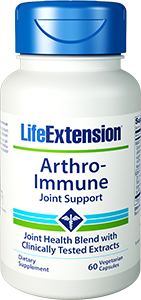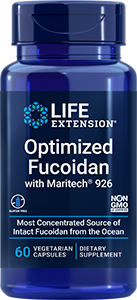 | September 13, 2011 | Doubling vitamin D level could add two years to life expectancy | | In the September, 2011 issue of the European Journal of Clinical Nutrition, W. B. Grant of the Sunlight, Nutrition and Health Research Center in San Francisco concludes that doubling one's serum level of vitamin D might increase life expectancy by an average of two years. Dr Grant utilized epidemiologic studies, randomized controlled clinical trials and meta-analyses for his review. His methodology involved identifying major diseases for which having high vitamin D levels was associated with a reduction in incidence and mortality, determining the strength of evidence and vitamin dose-mortality rate relations for each type of disease, obtaining World Health Organization mortality rates for the year 2004 for various regions, determining mean serum vitamin D levels for six regions and calculating the mortality rate reduction for each region. Conditions and diseases responsive to vitamin D that account for over half of the world's mortality include cancer, cardiovascular disease, diabetes, tuberculosis, and respiratory diseases and infections, while Alzheimer's disease, falls, Parkinson's disease, multiple sclerosis, maternal sepsis and pre-eclampsia were determined to be responsible for 2 to 3 percent. Dr Grant calculated that increasing serum vitamin D from 54 to 110 nanomoles per liter would lower the mortality rates of diseases that are sensitive to vitamin D by approximately 20 percent. When deaths from all causes over a given period were considered, doubling vitamin D would result in 7.6 percent fewer deaths for African females and 17.3 percent fewer among European females, with males having reductions that averaged 0.6 percent less. The total increase in life expectancy associated with doubling the population's vitamin D level averaged two years. Dr Grant notes several ways to raise serum vitamin D, including food fortification, supplementation and increased ultraviolet B exposure. "No matter what combination of approaches might be undertaken in different countries, there would have to be educational campaigns to encourage compliance, as well as selective monitoring of serum 25-hydroxyvitamin D levels to determine the efficacy of the programs," he concludes. | |  |
| Parkinson's disease is a devastating brain disorder that gradually robs people of the ability to control their own movements. While the causes and cure of this affliction remain elusive, progressive scientists are continuing to unravel this disease. During Parkinson's, cells in the parts of the brain that control movement and regulate mood are gradually destroyed. The primary defect in Parkinson's is a loss of dopaminergic neurons (such as dopamine-producing neurons) in a part of the brain called the substantia nigra. While the underlying defect involves a defective mitochondrial electron transport chain, experts agree that most of the actual damage that occurs during Parkinson's disease is caused by extremely high levels of oxidative stress. Not surprisingly, high levels of antioxidants, such as vitamin E and vitamin C, have been shown to relieve symptoms by protecting brain cells. Experimental evidence showed that enrichment with vitamin E protected against oxidative stress in the substantia nigra (Roghani M et al 2001). Some scientists suggest that "chronic, high dose vitamin E dietary supplementation . . . may serve as a successful therapeutic strategy for the prevention or treatment of Parkinson's disease" (Fariss MW et al 2003). Treatment with levodopa may be delayed for 2 years (or more) in newly diagnosed patients who receive large amounts of vitamins C and E (Fahn S 1992; Fahn S 1991). Vitamin C may relieve the symptoms of Parkinson's disease by neutralizing dopamine free radicals (Sakagami H et al 1998) and toxic quinones released from dopamine metabolism (Pardo B et al 1995), thereby protecting brain cells from levodopa-induced damage (Mytilineou C et al 1993). In the laboratory, bathing nerve cells in vitamin C enhanced dopamine synthesis (Seitz G et al 1998). Bioflavonoids, which provide the red, pink, and purple colors in fruits and vegetables, are even stronger antioxidants than vitamin C. Most are water soluble and easily penetrate the brain. Suggested antioxidant supplements include grape seed extract. The herbal compound Ginkgo biloba contains numerous antioxidants, including proanthocyanins and flavonoids, which help maintain healthy brain function, circulation, and metabolism. |
|  |   | 
Inflammatory conditions debilitate millions of adults, resulting in restricted mobility and reduced strength. Inflamed joints can lead to extensive damage to surrounding connective tissues, which causes the hands, feet, and arms to become painful, swollen and stiff.
While conventional methods can produce side effects, Arthro-Immune Joint Support combines two clinically proven plant extracts into one powerful formula to help those suffering from inflammation. Life Extension's Arthro-Immune Joint Support provides scientifically validated plant extracts that have been shown to have significant salutary effects on tender or swollen joints. Just one capsule a day provides a potent serving of PARACTIN® and BCM-95® Bio-Curcumin®. | | | Optimized Fucoidan with Maritech® 926 
 | | In recent years, scientific interest has intensified around fucoidan, a little-known molecule found primarily in edible seaweeds native to the Japanese diet. Nearly 900 published studies indicate its power to promote healthy immune function, cell-to-cell communication, and tissue repair. A single vegetarian capsule of Optimized Fucoidan with Maritech® 926 provides 88.5 mg of standardized Undaria pinnatifida extract, equaling the amount of fucoidan typically consumed daily in the traditional Japanese diet. Most people require only one capsule daily, though aging individuals seeking to enhance the benefit may choose to take two per day. | | | |  | Life Extension Update | What's Hot | Life Extension® Magazine | |















